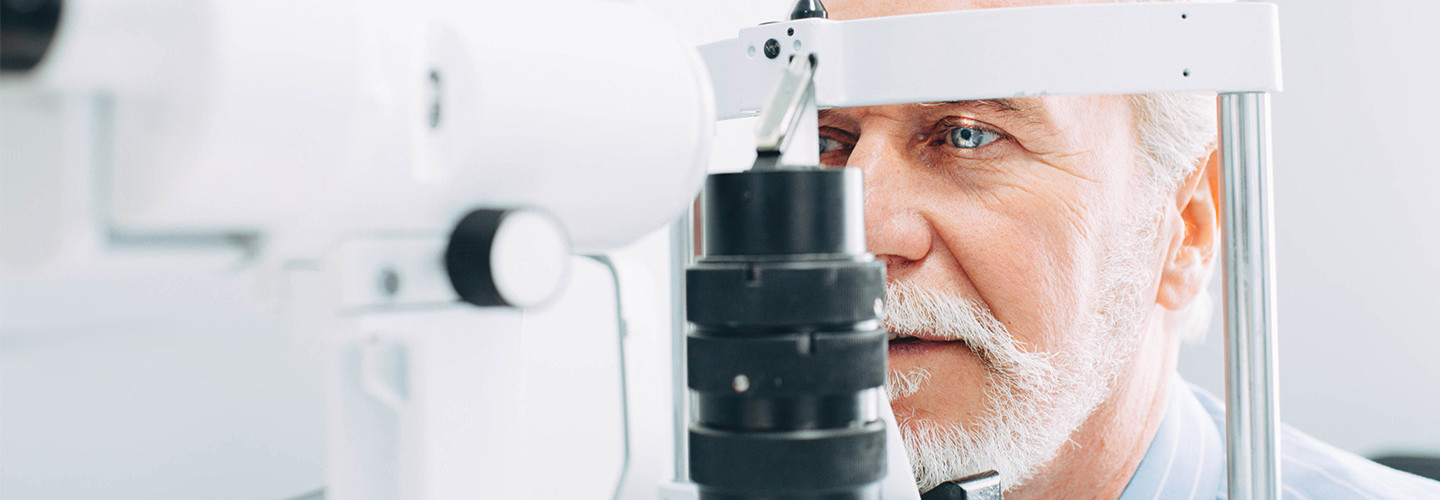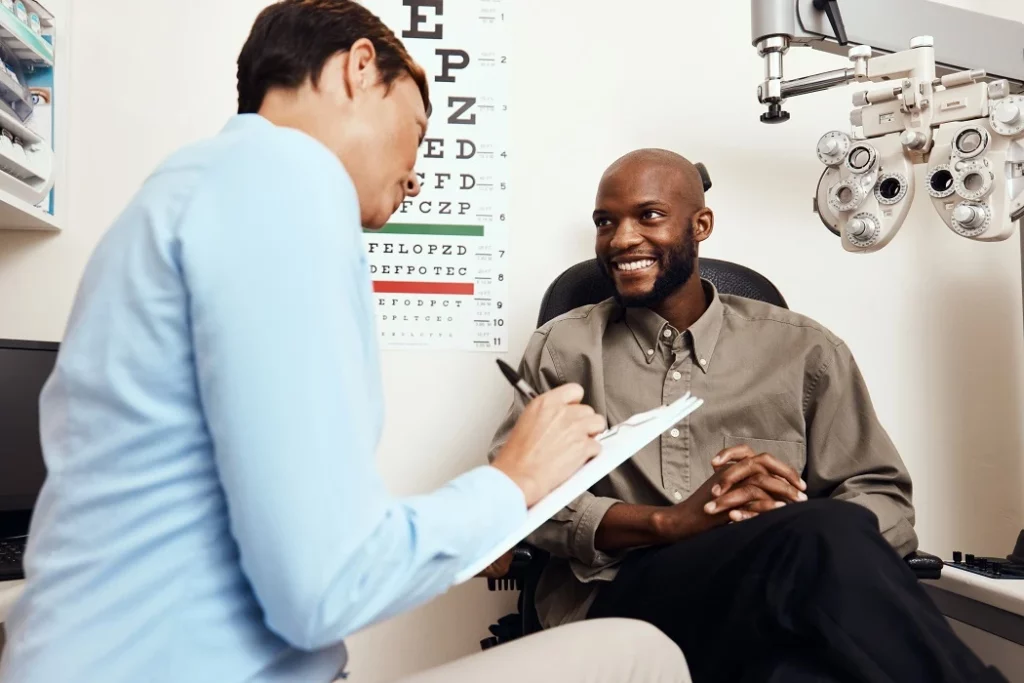All Categories
Featured
Low vision is a problem that considerably impacts daily tasks like analysis, driving, or identifying faces, despite having restorative lenses. For people encountering such challenges, reduced vision rehabilitation offers a path to reclaim independence and enhance quality of life. Allow's delve into the readily available alternatives for low vision recovery and just how they assist people navigate the globe more confidently.
Comprehending Low Vision Recovery
Low vision rehabilitation is a specific solution made to maximize the functional capacities of individuals with long-term vision disability. This multidisciplinary method involves analyses, training, and gadgets tailored to every individual's one-of-a-kind needs. The goal is to equip individuals by improving their remaining vision and mentor methods to adjust to their setting.
Trick Options in Low Vision Recovery
Comprehensive Eye Exams
A reduced vision specialist does in-depth assessments to recognize the extent of vision loss and identify suitable treatments. These assessments concentrate on figuring out the individual's aesthetic skill, field of vision, and light sensitivity.
Assistive Tools and Modern Technology
A vast array of tools and technologies are readily available to aid people with reduced vision:
Magnifiers: Handheld, stand-mounted, or digital magnifiers help expand message or images.
Telescopic Lenses: Useful for range viewing, such as watching TV or reading street signs.
Screen Readers: Software program that reviews aloud the message on a display, assisting those who battle with reading.
CCTV Systems: Closed-circuit televisions magnify printed material or things for much easier watching.
![]()
Smart Device Applications: Applications like Be My Eyes or Seeing AI give real-time assistance and summaries of environments.
Educating Programs
Vision rehabilitation includes training to optimize the use of continuing to be vision and adjust to new tools:
Orientation and Mobility Training: Aids individuals browse strange spaces and use walking sticks or guide pets efficiently.
Daily Living Abilities: Teaches techniques for food preparation, grooming, and other daily tasks with minimal vision.
Visual Skills Training: Includes exercises to reinforce field of vision or boost emphasis.
Ecological Adjustments
Adapting the home or workplace can dramatically boost self-reliance:
Installing brighter lighting and contrasting colors.
Including responsive markers to devices.
Setting up furnishings to create clear courses and lower barriers.
Counseling and Emotional Assistance
Vision loss can be emotionally tough. Support groups and counseling services assist people handle the emotional impact and construct resilience.
Who Offers Low Vision Recovery?
Low vision rehabilitation services are offered by:
Reduced Vision Specialists: Optometrists or ophthalmologists with added training.
Physical Therapists: Experts who concentrate on boosting everyday performance.
Recovery Counselors: Professionals who aid with psychological and emotional assistance.
![]()
Final Thought
Low vision rehab is a lifeline for those living with considerable vision loss. If you or an enjoyed one is experiencing vision obstacles, consider getting to out to a low vision specialist to explore these transformative rehabilitation services.
Comprehending Low Vision Recovery
Low vision rehabilitation is a specific solution made to maximize the functional capacities of individuals with long-term vision disability. This multidisciplinary method involves analyses, training, and gadgets tailored to every individual's one-of-a-kind needs. The goal is to equip individuals by improving their remaining vision and mentor methods to adjust to their setting.
Trick Options in Low Vision Recovery
Comprehensive Eye Exams
A reduced vision specialist does in-depth assessments to recognize the extent of vision loss and identify suitable treatments. These assessments concentrate on figuring out the individual's aesthetic skill, field of vision, and light sensitivity.
Assistive Tools and Modern Technology
A vast array of tools and technologies are readily available to aid people with reduced vision:
Magnifiers: Handheld, stand-mounted, or digital magnifiers help expand message or images.
Telescopic Lenses: Useful for range viewing, such as watching TV or reading street signs.
Screen Readers: Software program that reviews aloud the message on a display, assisting those who battle with reading.
CCTV Systems: Closed-circuit televisions magnify printed material or things for much easier watching.

Smart Device Applications: Applications like Be My Eyes or Seeing AI give real-time assistance and summaries of environments.
Educating Programs
Vision rehabilitation includes training to optimize the use of continuing to be vision and adjust to new tools:
Orientation and Mobility Training: Aids individuals browse strange spaces and use walking sticks or guide pets efficiently.
Daily Living Abilities: Teaches techniques for food preparation, grooming, and other daily tasks with minimal vision.
Visual Skills Training: Includes exercises to reinforce field of vision or boost emphasis.
Ecological Adjustments
Adapting the home or workplace can dramatically boost self-reliance:
Installing brighter lighting and contrasting colors.
Including responsive markers to devices.
Setting up furnishings to create clear courses and lower barriers.
Counseling and Emotional Assistance
Vision loss can be emotionally tough. Support groups and counseling services assist people handle the emotional impact and construct resilience.
Who Offers Low Vision Recovery?
Low vision rehabilitation services are offered by:
Reduced Vision Specialists: Optometrists or ophthalmologists with added training.
Physical Therapists: Experts who concentrate on boosting everyday performance.
Recovery Counselors: Professionals who aid with psychological and emotional assistance.

Final Thought
Low vision rehab is a lifeline for those living with considerable vision loss. If you or an enjoyed one is experiencing vision obstacles, consider getting to out to a low vision specialist to explore these transformative rehabilitation services.
Latest Posts
Discover Exclusive Auto Repair Specials in Chicago at Montclare Auto Repair
Published en
1 min read
Uncover Reduce Expenses on Car Maintenance with Montclare Auto Repair’s Limited-Time Deals
Published en
1 min read
How Regular Vehicle Maintenance at Montclare Auto Repair Saves You Money
Published en
1 min read
More
Latest Posts
Discover Exclusive Auto Repair Specials in Chicago at Montclare Auto Repair
Published May 27, 25
1 min read
Uncover Reduce Expenses on Car Maintenance with Montclare Auto Repair’s Limited-Time Deals
Published May 27, 25
1 min read
How Regular Vehicle Maintenance at Montclare Auto Repair Saves You Money
Published May 26, 25
1 min read